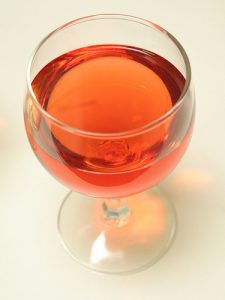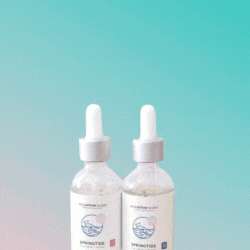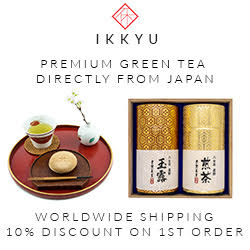
Are you a wine enthusiast?
Tea and wine are very similar. If you like one, there’s a high chance that you will enjoy the other one as well.
In this post I’ll tell you about 4 aspects that both have in common.
Social drinks
Although you can certainly drink tea or wine by yourself, it’s much more fun when you drink with someone else.
In the West, wine is very popular at dinner and family reunions, while afternoon tea and tea parties are becoming trendy again.
Asians have been drinking tea as a central part of social relations for a long time. Even the Japanese tea ceremony gives the guests a great importance.
If you buy a very expensive wine or tea, wouldn’t you want to try it with someone else?
Large variety
There are six general types of tea, while in wine you have red, white, rosé and sparkling.
But it doesn’t stop there. There are different grape varieties for wine, as well as cultivars for tea. Furthermore, cultivation, processing, and growing region also increase the diversity, resulting in a great number of different teas and wines.
At this blog I concentrate on Japanese teas only. Surprisingly, I’m still discovering new things and there’s many types of teas from different regions that I haven’t tasted yet!
Terroir
If you take a specific tea cultivar or wine variety and plant it somewhere else, at the end of the process it will taste differently, no matter how exactly you copy the cultivation and processing techniques.
The climate, soil type, topography, all of them compose the terroir. It’s primarily a term for wine, but nowadays it applies to many more products.
The terroir has a direct impact on the quality (and price) of both tea and wine. The nuances in color, flavor and aroma are greatly affected by it.
Since climate isn’t the same every year, tea and wine’s qualities also vary at different harvests. You can have a superb drink one year and a regular one on the next year.
Tasting
For both tea and wine, you must serve at the right temperature, and examine the color, aroma, taste and mouth feel.
Astringency is common in both drinks. Sweetness is also found in tea but at a lighter degree. There are also flavor notes that you can notice for each, which add to the complexity.
While I’m not an expert tea taster, I’ve tried green teas with flavor notes ranging from grapes to nuts. It’s very surprising when you start to discover these.
I think that it’s not a matter of choosing one over the other, there are good occasions for each. For example, I always have tea at breakfast. I can’t imagine drinking an alcoholic beverage in the morning!
If you have friends that are into wine but haven’t yet discovered tea, please share this article with them 🙂






September 23, 2014
There are definitely a lot of similarities between tea and wine. While working at a wine shop, I gained a lot of vocabulary to help explain what experienced in a cup of tea. I never got that into it though because tea offers a much better bang for your buck 🙂
September 23, 2014
Sure, tea is much cheaper, even the expensive ones. A bottle of wine can only make 5 or 6 servings, a standard package of tea makes way more and can be reinfused.
September 25, 2014
Hi, I am agree ..tea and wine taste both are same..i drink wine and tea. so i know very well about taste there are many type of tea- organic loose leaf tea, loose rooibos tea, Chinese Oolong tea,loose herbal tea..I love all
September 26, 2014
Such a great post. I completely agree – I always say that the best way to also try and pair tea with food is to think of how one would pair it with wine as well. I will be sharing with my wine loving friends 🙂
September 26, 2014
Thank you Lu Ann. I’m happy that you like this post.
November 24, 2014
Wonderful article, so fun to hear about other people’s views on tea and culture. I have been living with a family of tea farmers in Xishuangbanna Yunnan in Southwestern China, the birthplace of tea. The first tea the world ever had is what we now call Puer tea, raw Puer. After spending much time with this family, I have been able to share this tea with folks. The culture, the love, and the way this tea makes you feel is incomparable and the tea is all from one family, one farm. Definitely just would love to chat about tea sometime if you want to write me. http://www.MistyPeakTeas.com happy to send out any samples as well. Anyone tried Raw Puer tea? The green kind?
November 24, 2014
Hi Nicholas, thanks for your comment.
I only review Japanese teas for the blog, unfortunately.
I’ve tried raw puer, but I must admit that I’m not very knowledgeable about post fermented teas in general.